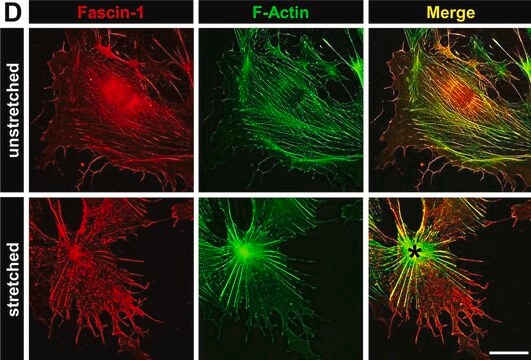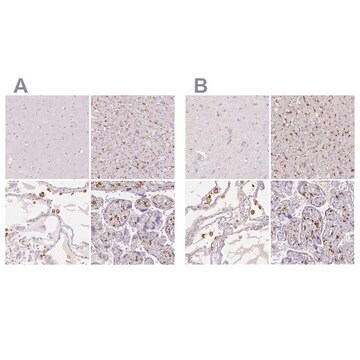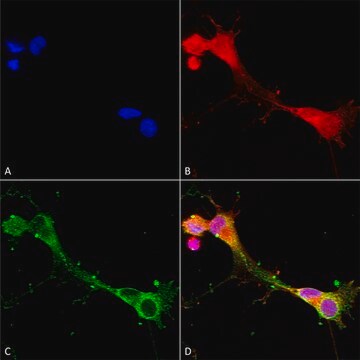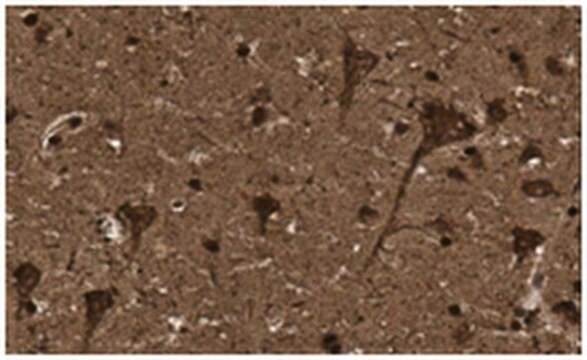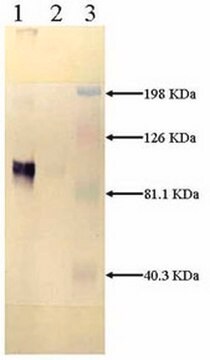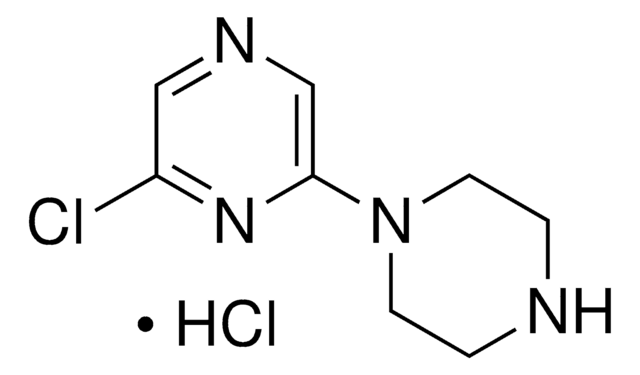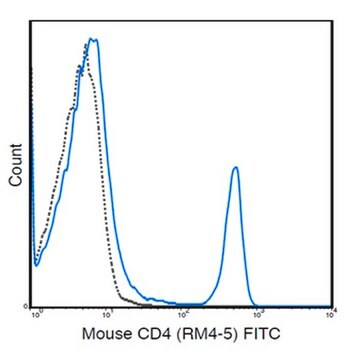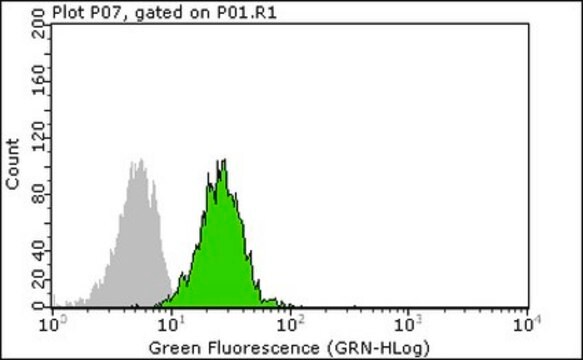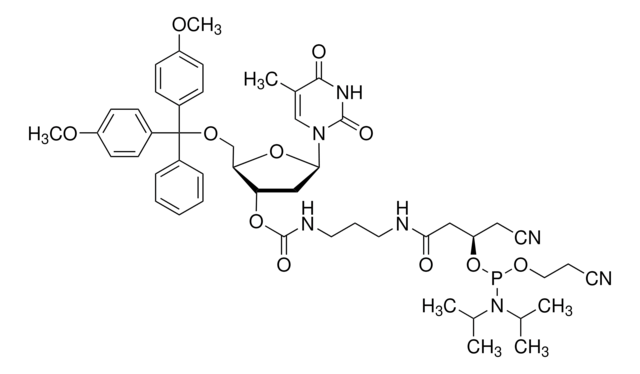MAB3582
Anti-Fascin Antibody, clone 55K2
clone 55K2, Chemicon®, from mouse
Synonym(s):
Anti-FAN1, Anti-SNL, Anti-p55
About This Item
Recommended Products
biological source
mouse
Quality Level
antibody form
purified antibody
antibody product type
primary antibodies
clone
55K2, monoclonal
species reactivity
echinoderm, sea urchin, gerbil, human
species reactivity (predicted by homology)
mammals
manufacturer/tradename
Chemicon®
technique(s)
immunocytochemistry: suitable
immunohistochemistry: suitable (paraffin)
western blot: suitable
isotype
IgG1
suitability
not suitable for immunoprecipitation
NCBI accession no.
UniProt accession no.
shipped in
wet ice
target post-translational modification
unmodified
Gene Information
human ... FSCN1(6624)
Specificity
Immunogen
Application
Cell Structure
Cytoskeleton
Immunohistochemistry on formalin fixed, paraffin embedded tissue sections. Suggested working dilution is 1:100-1:1,000.
Immunocytochemistry on cold methanol fixed cultured cells. Suggested working dilution is 1:100-1:1,000.
Optimal working dilutions must be determined by the end user.
Physical form
Storage and Stability
Analysis Note
POSITIVE CONTROL:
Hela cells, neuronal tissues, antigen presenting dendritic cells.
Other Notes
Legal Information
Disclaimer
Not finding the right product?
Try our Product Selector Tool.
Storage Class Code
10 - Combustible liquids
WGK
WGK 2
Flash Point(F)
Not applicable
Flash Point(C)
Not applicable
Regulatory Listings
Regulatory Listings are mainly provided for chemical products. Only limited information can be provided here for non-chemical products. No entry means none of the components are listed. It is the user’s obligation to ensure the safe and legal use of the product.
JAN Code
MAB3582:
Certificates of Analysis (COA)
Search for Certificates of Analysis (COA) by entering the products Lot/Batch Number. Lot and Batch Numbers can be found on a product’s label following the words ‘Lot’ or ‘Batch’.
Already Own This Product?
Find documentation for the products that you have recently purchased in the Document Library.
Our team of scientists has experience in all areas of research including Life Science, Material Science, Chemical Synthesis, Chromatography, Analytical and many others.
Contact Technical Service